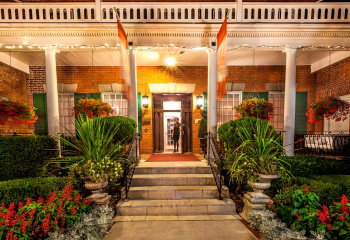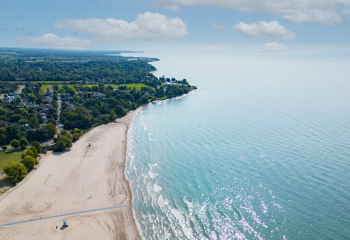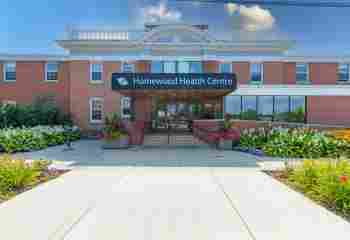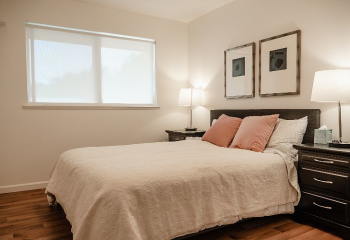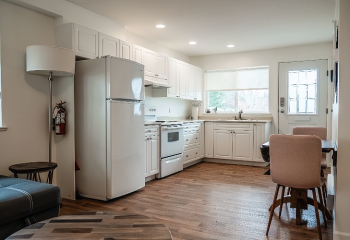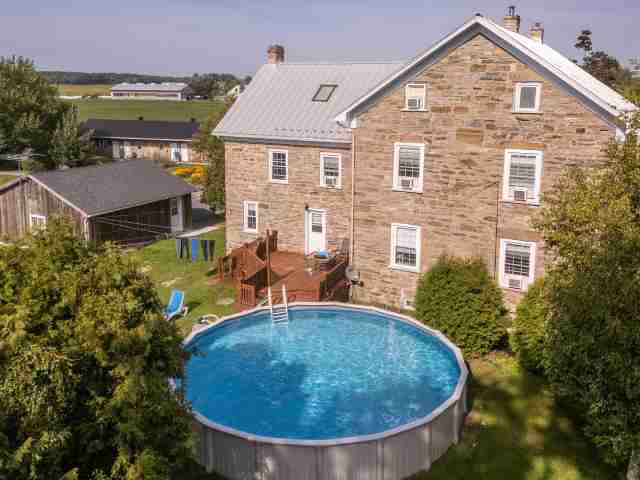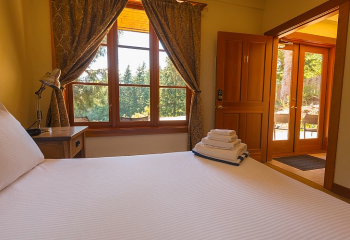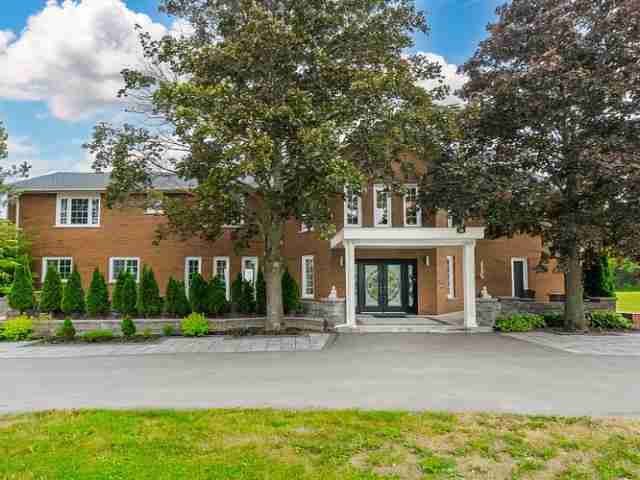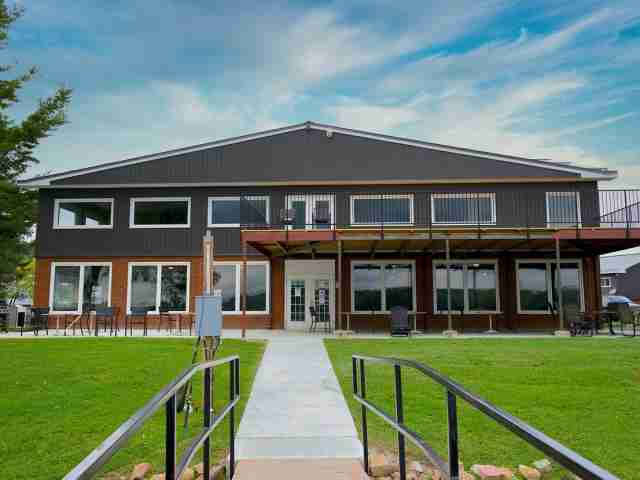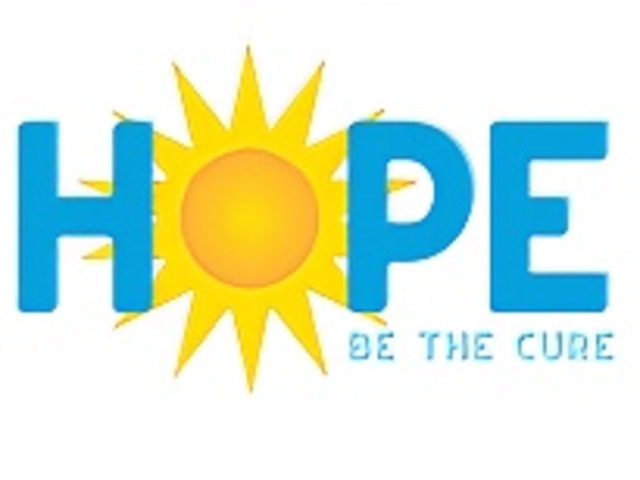More About Rehabs for Ecstasy Addiction
If someone is overdosing, call 911, or your local emergency services number, immediately. If you are qualified, administer CPR. Use Naloxone (Narcan) if available.
Ecstasy/MDMA is a synthetic substance that people often use for its energetic effects and to experience increased feelings of closeness, sexuality, and empathy(1). People who use ecstasy should be aware of what ecstasy is, ecstasy effects, and how ecstasy misuse can potentially lead to addiction(2). Keep reading to learn the facts about ecstasy and how to seek help if you suspect that you, or someone you know, might be struggling with ecstasy misuse or addiction.
What is Ecstasy?
Ecstasy, or MDMA (3,4-methylenedioxy-N-methylamphetamine), is a synthetic drug that alters mood and perception. It’s chemically similar to both stimulants and hallucinogens. It produces increased energy, pleasure, emotional warmth, and distorted sensory and time perception.
MDMA increases serotonin, dopamine, and norepinephrine neurotransmitter activity in the brain. A flood of these neurotransmitters causes the mood-lifting effects of MDMA.
Ecstasy is commonly found as a tablet or pill, often stamped with various symbols or logos. It can also be crystalline or powdered, sometimes referred to as "molly," which is often used to imply a purer form of MDMA, (content can vary widely). It may also be called XTC, rolls, E, X, and beans.
Many people are curious about ecstasy effects and how they are produced. Ecstasy works by increasing the activity of specific brain chemicals, primarily serotonin but also norepinephrine and dopamine(1,2). These chemicals, known as neurotransmitters, play important roles in brain signaling, communication, and functioning(1). Some of the most common ecstasy effects include(1,2):
- Changes in perception.
- Euphoria.
- A desire for physical closeness.
- Increased sensitivity to touch.
- Elevated energy.
- Increased sexual desire and activity.
- Increased feelings of trust.
- Increased empathy.
Effects of Ecstasy
Ecstasy effects generally start 30 to 45 minutes after you’ve swallowed pills or tablets; effects tend to last around 3 to 6 hours(1,2). However, effects can also persist for weeks or even months after your last use of the substance(1). People often consume more ecstasy when the effects start to wear off(2). If you use ecstasy, you may experience different effects over the course of the following week, which can include(2):
- Increased aggression.
- Irritability
- Impulsive behavior.
- Depression.
- Sleep problems.
- Anxiety.
- Problems with memory and attention.
- Poor appetite.
- Decreased sexual interest and sexual pleasure.
Risks of Ecstasy
Due to the increased release of serotonin in the brain, MDMA can lead to serotonin syndrome. Too much serotonin can be potentially life-threatening with symptoms such as agitation, rapid heartbeat, high blood pressure, muscle rigidity, confusion, and seizures.
Ecstasy is often found in pressed pill form, meaning that other additives can be used to create the pill. Bad actors may cut the ecstasy with cheaper ingredients, such as fentanyl, a potent synthetic opioid that is extremely easy to overdose on. Overdosing on fentanyl can occur even when a small amount is ingested, and the depressant effects on the central nervous system cause life threatening reactions. During fentanyl overdose, there is usually respiratory failure, where breathing becomes slow, shallow, or even stops completely. Without immediate medical intervention, an overdose can be fatal.
Is Ecstasy Addictive?
It’s not entirely clear whether ecstasy is addictive(2). Research has shown different results, but some animal studies have indicated animals will self-administer ecstasy in lab tests, which could be a sign of its addictive potential. However, the level of self-administration is lower than with other addictive substances, such as cocaine(2).
Additional research has shown that MDMA causes adaptations in serotonin and dopamine systems in the brain that lead to certain behaviors which are associated with addiction(3). Still, there have not been many conclusive studies on ecstasy’s potential to cause addiction, or in people who have used ecstasy(3).
Treatment for Ecstasy Misuse
There is no specific treatment or medication for Ecstasy/MDMA misuse, but studies have shown that behavioral therapy may be helpful for some people(2,4). More research is needed on potential ecstasy treatments(2).
If you are interested in quitting ecstasy, you should know that the National Institute on Drug Abuse (NIDA) says that the most effective behavioral therapies for ecstasy misuse include cognitive behavioral methods(4). Cognitive behavioral therapy (CBT) aims to help you change the thoughts, behaviors, and expectations that contribute to substance misuse and helps you learn healthier ways of coping with life stress without using substances(4).
Levels of Care for Ecstasy Misuse
Ecstasy addiction is very treatable. After detoxing (if necessary), you’ll begin therapy to get to the root of your addiction and learn coping skills to manage cravings. Some people with ecstasy addiction may need a more intensive level of care to help monitor and manage their symptoms. When talking to your doctor, consider discussing which level of care best fits your needs:
- Inpatient: You’ll live in a treatment centre or hospital-like setting and have 24/7 monitoring.
- Partial hospitalization (PHP): You’ll meet 5-7 times a week for a full day.
- Intensive outpatient (IOP): You’ll meet 3-5x per week for several hours at a time for more intensive care.
- Outpatient (OP): You’ll meet 1-2x per week with your provider and others in treatment.
Therapies Used to Treat Ecstasy Misuse
You may engage in talk therapies such as:
- Cognitive behavioral therapy (CBT) to learn how to replace unhealthy thought patterns with more affirming ones.
- Contingency management (CM) that provides positive reinforcement, such as rewards or incentives, for maintaining abstinence from ecstasy.
- Relapse prevention counseling to learn techniques to manage addiction cravings and other symptoms.
- Motivational interviewing to explore the reasons why you want to recover and use that purpose to motivate change.
Questions to Ask My Provider
If you’re looking for ecstasy treatment, talk to your primary care doctor. They can refer you to a substance use rehab to start your recovery. When talking to your provider, consider asking these questions:
- What are the benefits of the different types of treatment available? What are the risks?
- Are there any specific medical or psychiatric assessments I should do before starting treatment?
- What does relapse prevention planning look like?
- Is there treatment that can address any co-occurring disorders that I have?
- Does insurance cover treatment?
How Can I Find Support?
- Telehealth Provider
- Talk to a supportive friend or family member
- Talk to your primary care physician
- National Helplines
Sources
- U.S. Drug Enforcement Administration. (2020, April). Ecstasy/MDMA.
- National Institute on Drug Abuse. (2020, June 15). MDMA (ecstasy/molly) drugfacts.
- National Institute on Drug Abuse. (2021, April 13). MDMA (Ecstasy) abuse research report: Is MDMA addictive?
- National Institute on Drug Abuse. (2021, April 13). MDMA (Ecstasy) abuse research report: How are MDMA use disorders treated?













